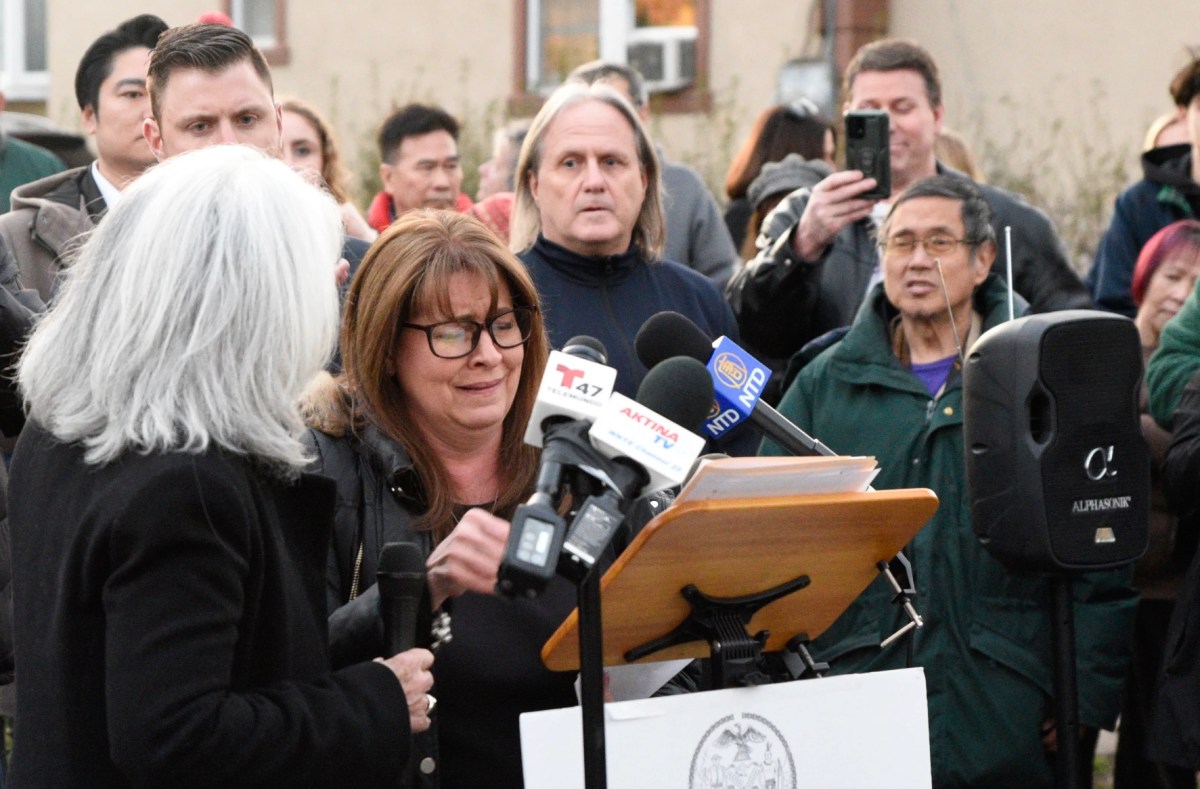 Meryl Streep says that her role in “August: Osage County” was one she put off because of the pain the character is in. Credit: Getty
Meryl Streep says that her role in “August: Osage County” was one she put off because of the pain the character is in. Credit: Getty
“August: Osage County” is an ensemble film, with big-name actors crowded into every inch of the screen. But most of the attention has drifted, inevitably, toward its matriarch, not the least because she’s played by Meryl Streep.
As Violet Weston, whose dysfunctional family packs into her remote Oklahoma home in the wake of her husband’s suicide, she’s a pill-popping monster, short-tempered and prone to speak her mind, which is usually crammed with wicked thoughts she mistakes for tough truths. This may sound more fun that it is.
“As an actor, you’re supposed to want to go to the house of pain over and over and over again,” Streep explains. “But it’s not something that’s fun. I resisted doing this initially, because of that. I just thought, ‘Ugh.’”
While everyone — including Julia Roberts, Juliette Lewis and Julianne Nicholson, who play her daughters — got along swimmingly, she still felt her character’s pain. “It wasn’t the most joyous experience from my point of view,” she says.
Adding to the tension was shooting while Hurricane Sandy raged and the presidential election occurred in the outside world. “It was important to make a connection beyond the set. Also I was smoking nonstop, which really makes you feel sh—y.”
She even felt a bit of jealousy, especially in comparison to Chris Cooper’s far more likable brother-in-law. “He would imbue [his character] with his enormous humanity and compassion. And I knew the audience would love him. And I knew they would hate me in equal measure.”
She says one of the more upsetting scenes was the first one in the film, with her husband, played by Sam Sheppard, before he kills himself.
“To look at him close up and see his loathing of me — that was really hard,” she says. “You still think that maybe there’s a spark of love from this person who’s gone through everything with you. And to look in his eyes and realize he’d rather be dead than look at you — that was brutal. That sort of set the tone for dealing with his death and everything afterwards.”
This said, the play source — by Tracy Letts, for which he was awarded the Pulitzer Prize — is still a comedy. “The humor’s borne out of pain. But you still want your laughs. Every single actor came to the first reading with a copy of the original play in their back pocket, with their lines highlighted that had been cut.” They even begged Letts, who adapted the play himself for the screen, to reinstitute key laugh lines.
And while the film, like the play, is more outsized in its grotesquery than most family get-togethers, it’s still supposed to be, Streep assures, relatable. “It’s like when you come together with your friends after Thanksgiving, and you say, ‘I have to tell you what my mother said!’ And you tell a story that was not funny when you were there, but in the telling it’s fabulous. That’s how you transform your life. Because if you can’t laugh about this stuff…”
















